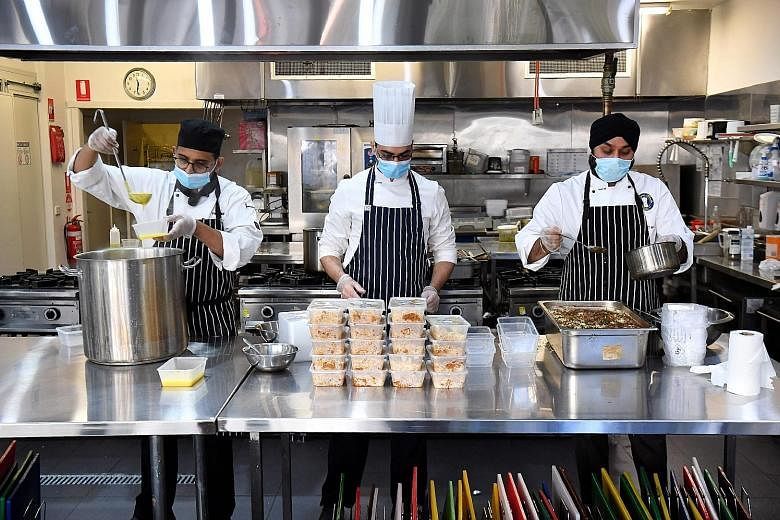SYDNEY • Australia's three decades of uninterrupted prosperity are coming to an abrupt end as the coronavirus pandemic crashes one of its most lucrative sources of income - immigration.
The country has been successful in managing the outbreak and reopening its A$2 trillion (S$1.88 trillion) economy, thanks in part to an early closure of its borders. But the policy has led to a halt in mass immigration - a key source of consumer demand, labour and growth - in an economy that is facing its first recession since the early 1990s.
Net immigration, including international students and those on skilled worker visas, is expected to fall 85 per cent in the fiscal year to June next year, curbing demand for everything from cars and property to education and wedding rings.
Mr Gurmeet Tuli, who owns a jewellery store in the Sydney suburb of Parramatta, said his business is already hurting in a neighbourhood that is home to tens of thousands of migrants. "My main clientele is young people who come here to study. They find work here and settle down, fall in love and want to get married," he said.
"I have not sold a single diamond ring in the past two months," he added, noting that business is down about 40 per cent so far this year.
So critical is migration to Australia that analysts reckon the economy would have slipped into a recession last year without new arrivals to boost population growth.
AMP Capital chief economist Shane Oliver estimates that population growth in recent years has boosted the economy by one percentage point a year.
But as migration stalls, the education, housing and tourism sectors are seen as among the worst hit.
The drought in international student arrivals, who in recent years made up about 40 per cent of the migrant intake, is expected to hit the A$37 billion education sector, Australia's second-largest services sector after tourism.
A fall in new arrivals could also dampen the construction boom in Australia's all-important housing sector, which has been fuelled by migrants in big cities such as Sydney and Melbourne.
Even though immigration is a politically divisive topic in Australia, there is a broad recognition that the country needs its 200,000 to 300,000 annual intake to grow consumption demand and fill skills shortages in various sectors.
While a large share of these migrants arrive on what are considered "temporary" visas, many later gain permanent residency and employment, adding to long-term population growth.
Australia's population would grow an average 1.6 per cent annually over the decade to 2027, according to the latest official projections from 2018. Without immigration, it was forecast to grow only 0.5 per cent.
"During a slowdown and when the unemployment rate is high, there is popular pressure to slow down migration," said AMP Capital's Mr Oliver. "But if we want the economy working back again, we need migration to return."
Immigration concerns range from sustainability and housing affordability to more populist complaints about social integration and foreigners taking local jobs.
Prime Minister Scott Morrison last week said Australia needed 160,000 to 210,000 arrivals to sustain gross domestic product per capita growth, and acknowledged the great uncertainty current restrictions cast over the outlook.
"It's going to be one of the real impacts of this crisis because our borders aren't opening any time soon," he said.
Over the years, immigration has helped transform Australia's retail and urban landscape, reviving down-at-heel suburban high streets, spurring swanky commercial property development and creating new consumer markets.
REUTERS











